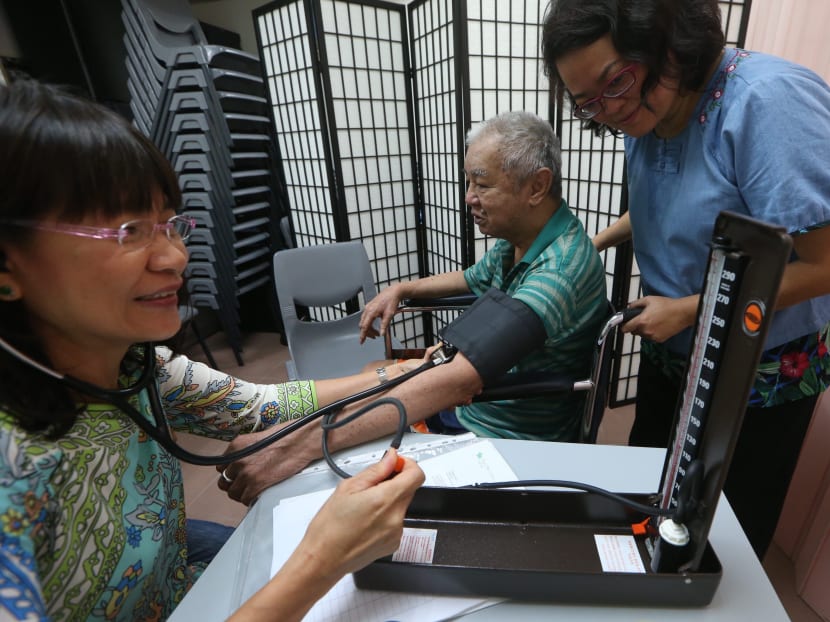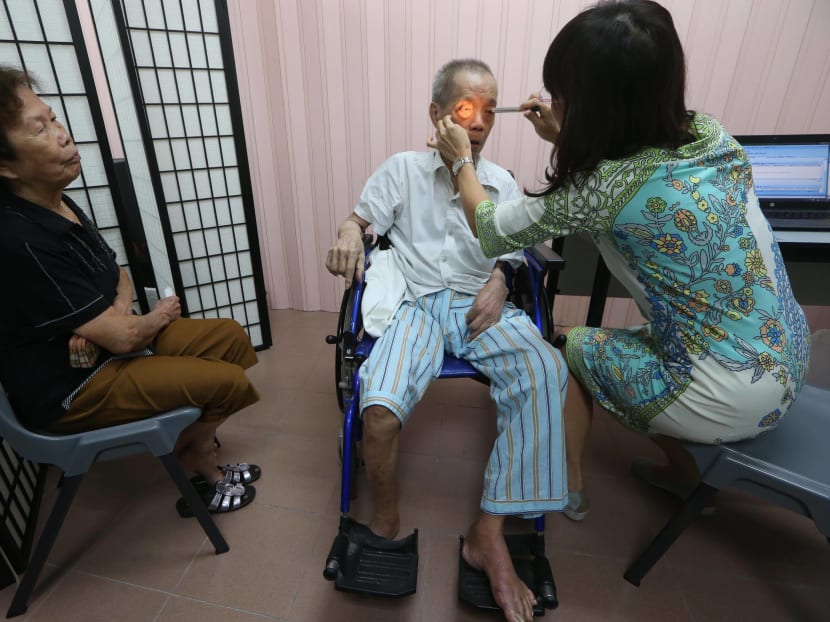Medical, social assistance for elderly residents thanks to ComSA@Whampoa
SINGAPORE — When he was hospitalised after a fall in 2011, doctors told Mr Lim Ah Ngiew, 69, that he had an advanced spinal condition. It left him wheelchair-bound, which, in turn, made him susceptible to other conditions, such as urinary tract infection, ulcers and constipation.


SINGAPORE — When he was hospitalised after a fall in 2011, doctors told Mr Lim Ah Ngiew, 69, that he had an advanced spinal condition. It left him wheelchair-bound, which, in turn, made him susceptible to other conditions, such as urinary tract infection, ulcers and constipation.
For his appointments at the hospital, Mr Lim used to have to ask his son to take leave from work and accompany him.
But now, seeking treatment has become easier because he only has to visit a mobile clinic set up at the Whampoa Residents’ Committee Centre 10 minutes from his home.
Mr Lim is among the 120 elderly residents in Whampoa who have received help from the community-based programme by the Tsao Foundation, piloted since 2012 to help seniors near their homes.
The programme, called Community for Successful Ageing (ComSA), aims to offer affordable and accessible integrated health and social care. It will be officially launched on Saturday and aims to help nearly 700 residents by March 2017.
The foundation decided to start the project after finding that health and social care services, though widely available, are disjointed, said its chairman Mary Ann Tsao.
“We have to work with other age-care agencies (such as) Social Service Offices (and) Family Service Centres to create the connectivity between the different agencies ... (and) create that network of caregivers,” she added.
Its partners include Whampoa grassroots groups, volunteer service agencies, private businesses, and enterprise and research institutions. The Tote Board has committed S$4 million to the project, while the Tsao Foundation is contributing another S$1 million.
The extent of help each client receives varies depending on their level of need. High-risk, medically complex cases with little social support will be assigned to professional care managers and referred to the ComSA mobile clinic for treatment. On the other hand, clients who have received treatment but cannot be fully discharged from the programme will be paired with trained volunteer para-care managers.
To identify at-risk seniors, the Tsao Foundation will be finalising a screening tool that covers their physical, social and psychological needs, said Ms Peh Kim Choo, director of the Hua Mei Centre for Successful Ageing.
Hua Mei Centre is a service arm of the Tsao Foundation.
While most assessment tools can only be administered by professionals such as nurses or social workers, Ms Peh said they intend to develop a tool that can be used by ordinary people such as trained volunteers, grassroots leaders and even neighbours.
Apart from its care management system, the programme will also look into nurturing a community that supports ageing in place.
For a start, it will be introducing a 24-week programme next month, called Self-Care For Health Of Older Persons, to give seniors tips on managing health issues, as well as to create a peer support group for them.






